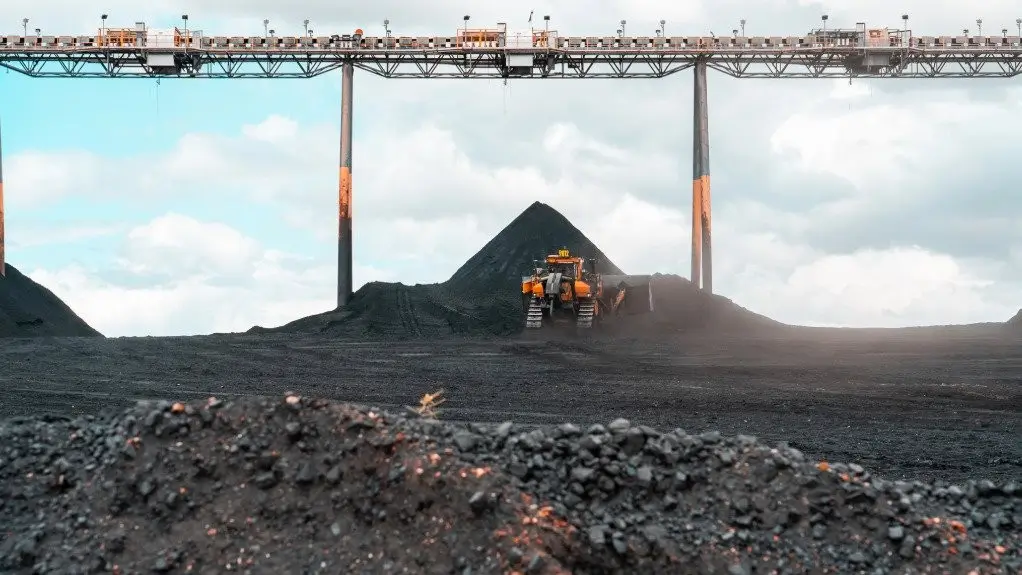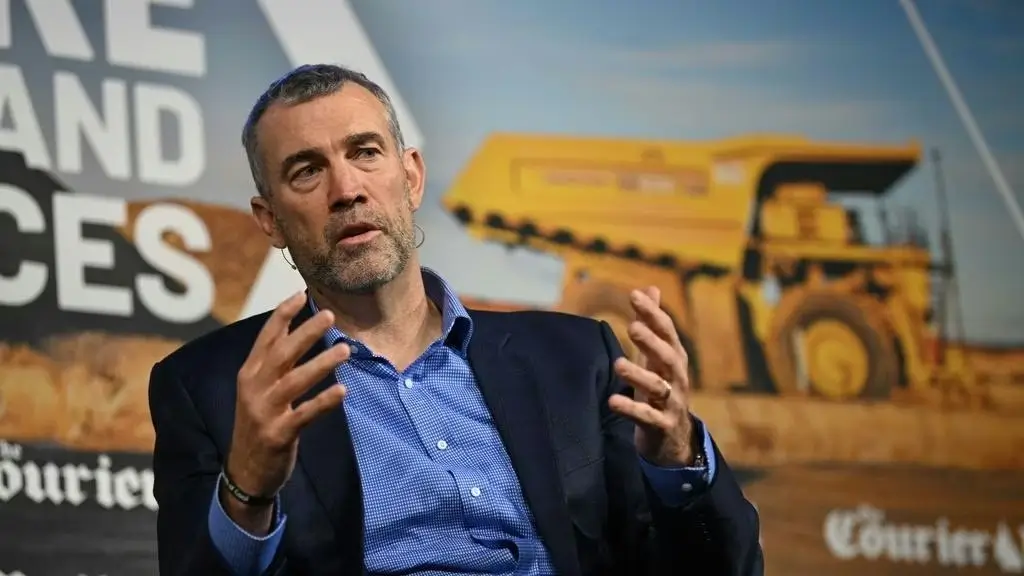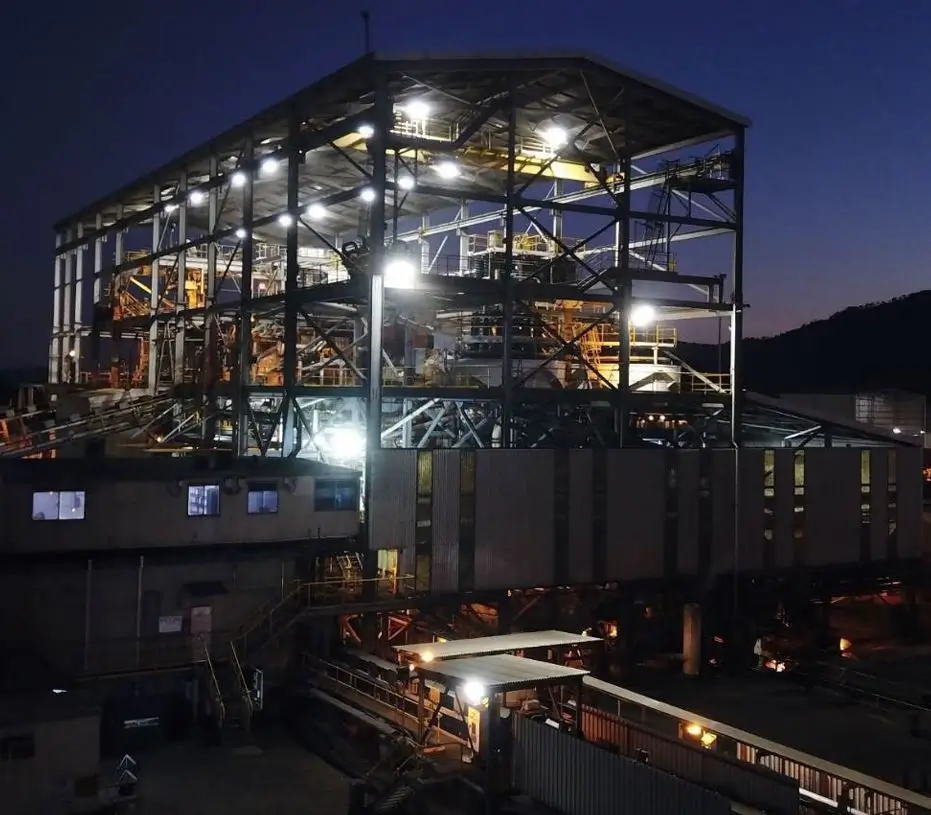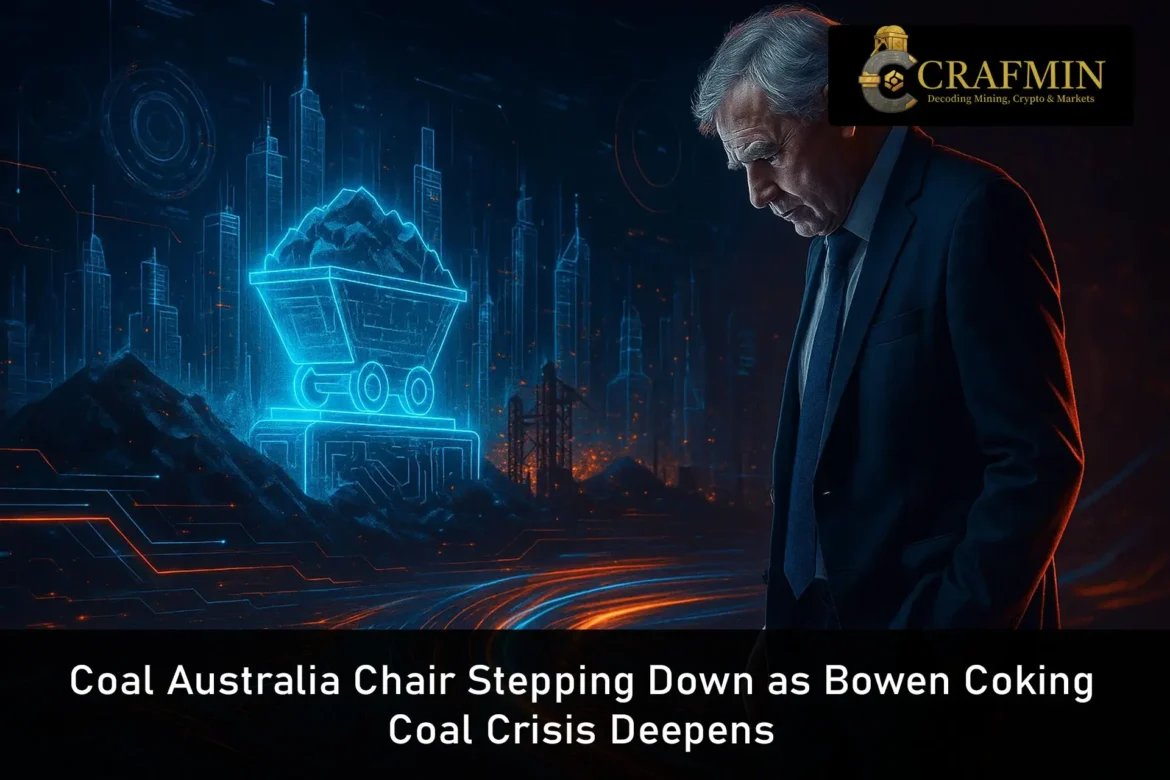
Source: Bowen Coking Coal
Nick Jorss has resigned as chair of Bowen Coking Coal and Coal Australia, describing the sector as the “canary in the coal mine,” with the widespread financial distress in this sector tightening its claws. Jorss resigned as the anxiety of up to 500 jobs being lost at the Burton coal complex at Moranbah raises the difficult questions for Queensland’s coal royalty system and the future of the sector.
A Sudden Exit Amid Escalating Crisis

Credit: Lyndon Mechielsen/Courier Mail
At a stark boardroom announcement earlier today, Jorss said the burden of “world’s highest royalties,” low global coal prices, and soaring production costs had converged to imperil operations.
He warned that the situation at Bowen Coking Coal reflects deeper sector-wide frailties. “We’re seeing widespread red ink, and many coal producers may already be underwater,” he said.
Even after relinquishing his official leadership position, Jorss will remain on as an advisor, as the firm makes way for new chairman Rob Bishop, CEO New Hope Group.
The Human Cost—500 Lives Hanging by a Thread
At the epicenter of the crisis is the Burton coal mine, which is the largest employer in the Bowen Basin. The proposed shutdown aims at 500 jobs directly—and with each of those is the disruption of families, local businesses, and services.
In pubs at Moranbah, waves of worry have already been experienced. One truck driver encapsulated the mood in town:
“It’s not just my job—it’s this community’s heartbeat. One strike and everything stops.”
What’s Behind the Fallout
A number of related pressures bear down on coal miners:
Record royalty payments the Queensland government is seeking—or “super royalties,” to borrow the name they ultimately coined, courtesy of Jorss—are hardest when profitability is flagging.
- A precipitous drop in coking coal prices, driven by low world steel demand and energy transitions.
- Maintenance backlogs and operating overheads overrun and committed to older mine plans.
- A rejected application for royalty deferral to the Queensland Revenue Office, which managers claim would have provided much-needed time.
- Lacking strategic guidance, commentators claim Burton’s shutdown would set off a domino effect of regional shut-downs.
Political Pressure and Industry Response
The crisis has led to rapid political response. Coal Australia CEO welcomed the LNP’s rapid response to mining royalties but indicated increasing alarm unless policy settings are changed in the short term.
Premier David Crisafulli and Treasurer Dale Last promised not to tinker with the existing royalty regime this term. But growing public pressure can precipitate a rethink—particularly if more operations begin to stumble.
Is Reform the Only Path?

Source: Bowen Coking Coal
Industry leaders say Queensland needs to change the way it treats mining companies:
- Link royalties to profits, not sales, to match better during downturns.
- Establish strategic review panels to assist struggling operations with contingency planning.
- Support cleaner coal processing investments to compete internationally.
- Pay for community transition projects in struggling communities, such as Moranbah, to reduce impact.
- Unless action is taken, regional dependence on mining can no longer be sustained.
Broader Context: A Coal-Based Economy Spread Thin
Queensland’s past as a coal giant now collides with the cold harsh truth of the world moving away from it, and prices declining.
Regional centers can no longer rely on thermal or coking coal alone to survive. These are echoes across industries—bailouts of copper smelters through to redirection of lithium investment—reflecting where Australia is today at the resource transition crossroads.
Also Read: VHM Appoints New CFO, CEO to Take Goschen Project Forward
Here’s a fully crafted, humanised mining news article focused on the breaking development surrounding Coal Australia’s leadership change amid the crisis at Bowen Coking Coal. It employs an Australian English style, follows SEO best practices, and meets your specifications—complete with Meta Title, Meta Description, URL Slug, and a rich blend of narrative and factual detail.
What Comes Next?
| Action Area | What’s at Stake |
| Sale or Recapitalisation | Can Bowen Coking Coal secure investment to stay operational? |
| Policy Reform | Will royalties be adjusted to reflect industry cycles? |
| Workforce Support | Are transition packages in place for affected workers? |
| Regional Resilience | How will towns like Moranbah survive potential shutdowns? |
Last Word — A Test of Commitment to Regional Australia
Nick Jorss’s resignation is meant to bring attention to a decisive moment—not just for Coal Australia, but to how Australia is treating its backbone industries.
While the industry grapples with structural challenges, the way ahead will have to balance economic sense with social sensitivity. The communities constructed on coal are owed more than business as usual—they’re owed transparency, aid, and public will to see an economic lifeline that is hanging by a thread.

